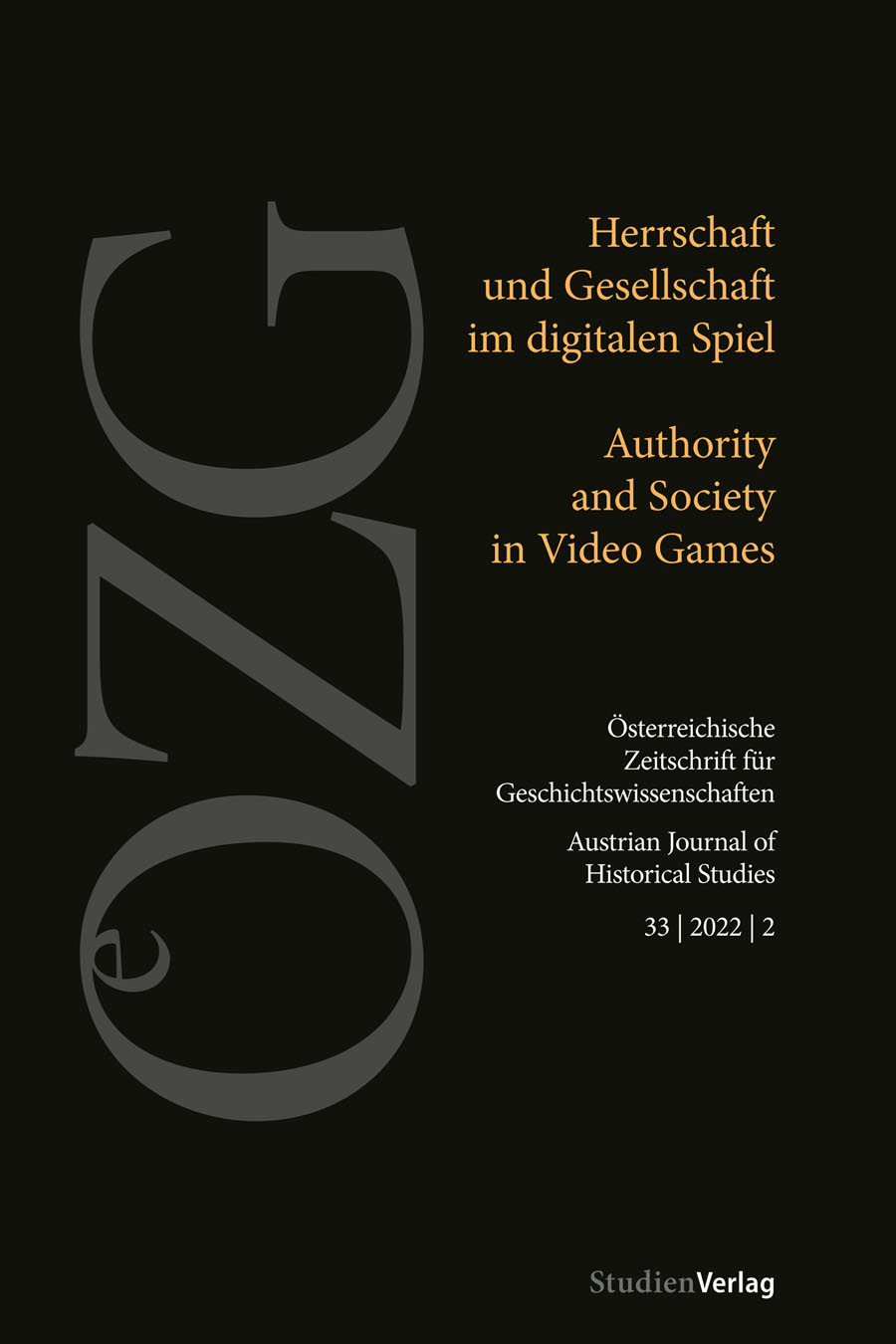„Wie lernt man die Welt am besten kennen? Man macht sie sich untertan“
Zur Ideengeschichte von Herrschaft in digitalen Spielen
DOI:
https://doi.org/10.25365/oezg-2022-33-2-6Schlagworte:
history of ideas, video games, contemporary history, cultural historyAbstract
The history of ideas of the late twentieth and early twenty-fist centuries requires to take into account new forms of media expression such as video games. Video games have been an integral part of our entertainment culture for more than 40 years and are an international billion dollar business. Questions like “What is power? What does justice mean in politics? Who should govern whom?” are not only encountered in political essays and parliamentary debates. In order to understand how people have thought about domination in concrete societies over the past 40 years, we also have to examine the games that were played. Games cannot be imagined as an element of our societies and cultures independently of them; they are spaces of discourse where statements are constructed and communicated, and political ideas can be tested and applied in a playful way. As a medium, they thus provide a necessary space of communication within our highly complex societies, and as models of abstraction they also offer very specific access to a (very specific?) political reality.
Downloads
Veröffentlicht
Zitationsvorschlag
Ausgabe
Rubrik
Lizenz
Copyright (c) 2022 Österreichische Zeitschrift für Geschichtswissenschaften

Dieses Werk steht unter der Lizenz Creative Commons Namensnennung 4.0 International.


